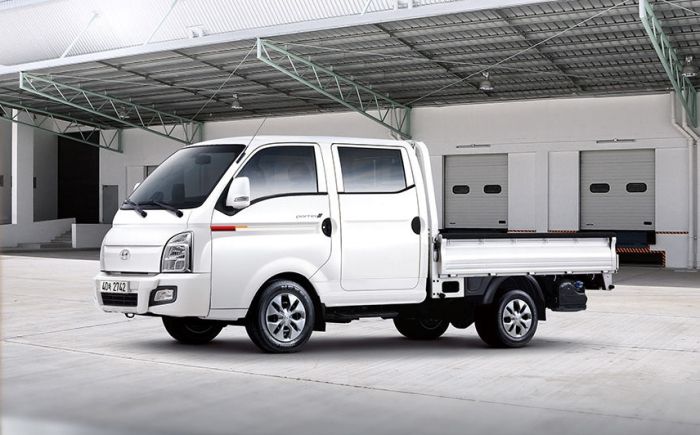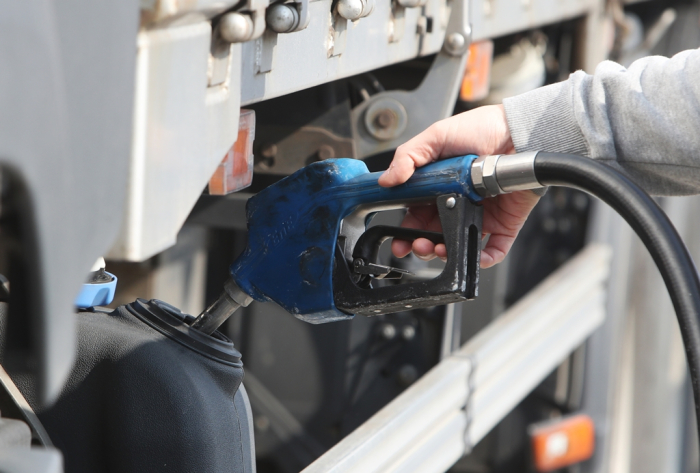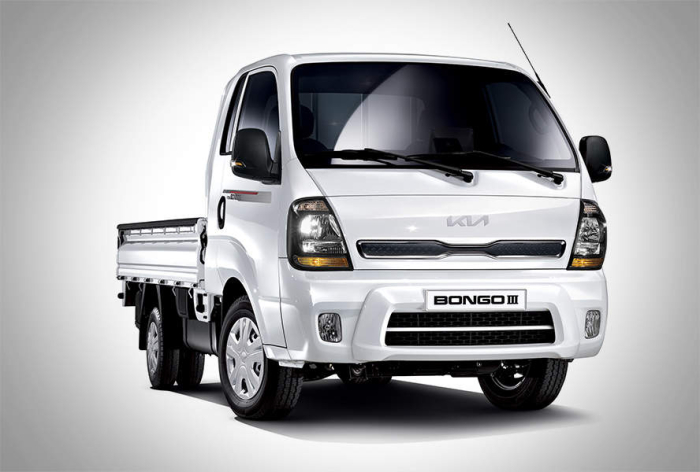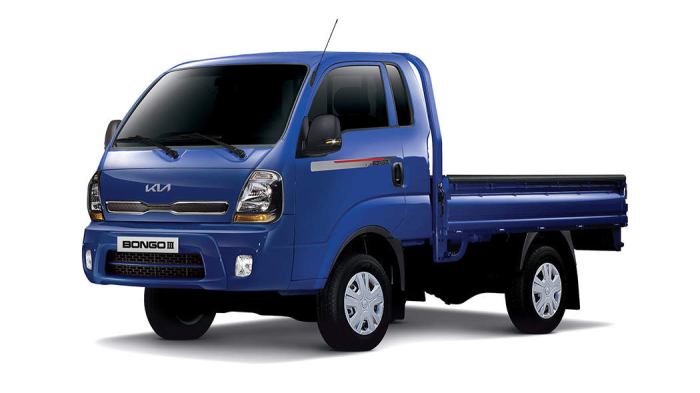Automobiles
End of an era: Hyundai, Kia say goodbye to diesel-powered Porters, Bongos
The new Porter and Bongo compact trucks will come with next-generation LPG engines or be all-electric
By Jul 24, 2023 (Gmt+09:00)
2
Min read
Most Read
S.Korea's LS Materials set to boost earnings ahead of IPO process


NPS to commit $1.1 billion to external managers in 2024


Samsung shifts to emergency mode with 6-day work week for executives


Samsung Heavy Industries succeeds autonomous vessel navigation


Korean battery maker SK On expects business turnaround in H2



Hyundai Motor Co. and Kia Corp. will cease manufacturing diesel-powered compact trucks in November and replace them with liquefied petroleum gas (LPG) cars in line with the industryŌĆÖs shift toward eco-friendly vehicles.
The two automaking units of South KoreaŌĆÖs top carmaker Hyundai Motor Group recently notified their sales outlets across the country of their decision to officially discontinue the production of the Hyundai Porter and the Kia Bongo.
From December, the carmakers will instead build the same models with a next-generation 2.5-liter LPG-powered T-LPDi turbo engine or make them all-electric.
The two pickups have widely been used by delivery service operators in Korea for two decades. The production of the 1-ton Kia Bongo automatic transmission diesel model ŌĆō one of the most popular such vehicles ŌĆō already ceased on July 14.

Under the governmentŌĆÖs strengthened environmental regulations, delivery service providers will be banned from registering new diesel vehicles starting in January.
The termination of the production of the diesel compact trucks is also in line with the tougher Euro 7 emission rules, Hyundai Motor Group officials said.
LPG VEHICLES TO REPLACE DIESEL CARS
Discontinued diesel models will be replaced by LPG-powered vehicles.

Hyundai and Kia began developing the next-generation T-LPDi direct injection turbo engine with improved functions a decade ago.
The new engine will address the weaknesses of LPG engines, such as weak power and low fuel efficiency.
According to Hyundai, new Bongo and Porter trucks equipped with this engine will be 10% more fuel-efficient than the existing LPG-engine cars.
The new Hyundai Porter will represent the resurrection of an LPG-powered Porter in two decades. HyundaiŌĆÖs previous model suspended production in 2003.
KiaŌĆÖs new LPG Bongo is also being reintroduced after the production of the pickup was halted last November due to weak sales.
Compared with diesel commercial vehicles, LPG-powered cars will be priced higher. But car buyers will likely be granted government subsidies for those who transition to LPG vehicles.

END OF THE DIESEL ERA
Diesel cars are rapidly losing their competitiveness.
In the first half of this year, the number of newly registered diesel vehicles in Korea stood at 162,000, about a third of 452,000 gasoline cars. Hybrid car registrations reached 186,000 units.
Cumulative diesel-powered vehicles at the end of June stood at 9.63 million units, down 1.3% from the end of last year, as more diesel cars are scrapped than new registrations.
The number of diesel-powered passenger cars will also decline, industry watchers said.
Currently, Hyundai Motor sells diesel versions of its best-selling Tucson and Palisade SUVs, while Kia offers the Sportage and Sorento SUVs in diesel models. HyundaiŌĆÖs standalone premium brand Genesis also has diesel versions of the GV70 and GV80 SUVs.
Genesis plans to transition to only making electric cars from 2025.
Write to Nan-Sae Bin and Il-Gue Kim at Binthere@hankyung.com
In-Soo Nam edited this article.
More to Read
-
 AutomobilesS.Korea's new hybrid car registrations in May exceed diesel's for first time
AutomobilesS.Korea's new hybrid car registrations in May exceed diesel's for first timeJun 05, 2023 (Gmt+09:00)
1 Min read -
 AutomobilesElectric vehicles in S.Korea beat diesel cars in sales
AutomobilesElectric vehicles in S.Korea beat diesel cars in salesFeb 10, 2023 (Gmt+09:00)
1 Min read -
 Supply chainDeepening diesel exhaust fluid crisis puts KoreaŌĆÖs key industries at risk
Supply chainDeepening diesel exhaust fluid crisis puts KoreaŌĆÖs key industries at riskNov 05, 2021 (Gmt+09:00)
6 Min read -
 Carbon neutralityKorean govt urged to hike diesel tax, ban fossil fuel cars by 2035
Carbon neutralityKorean govt urged to hike diesel tax, ban fossil fuel cars by 2035Nov 24, 2020 (Gmt+09:00)
3 Min read
Comment 0
LOG IN


